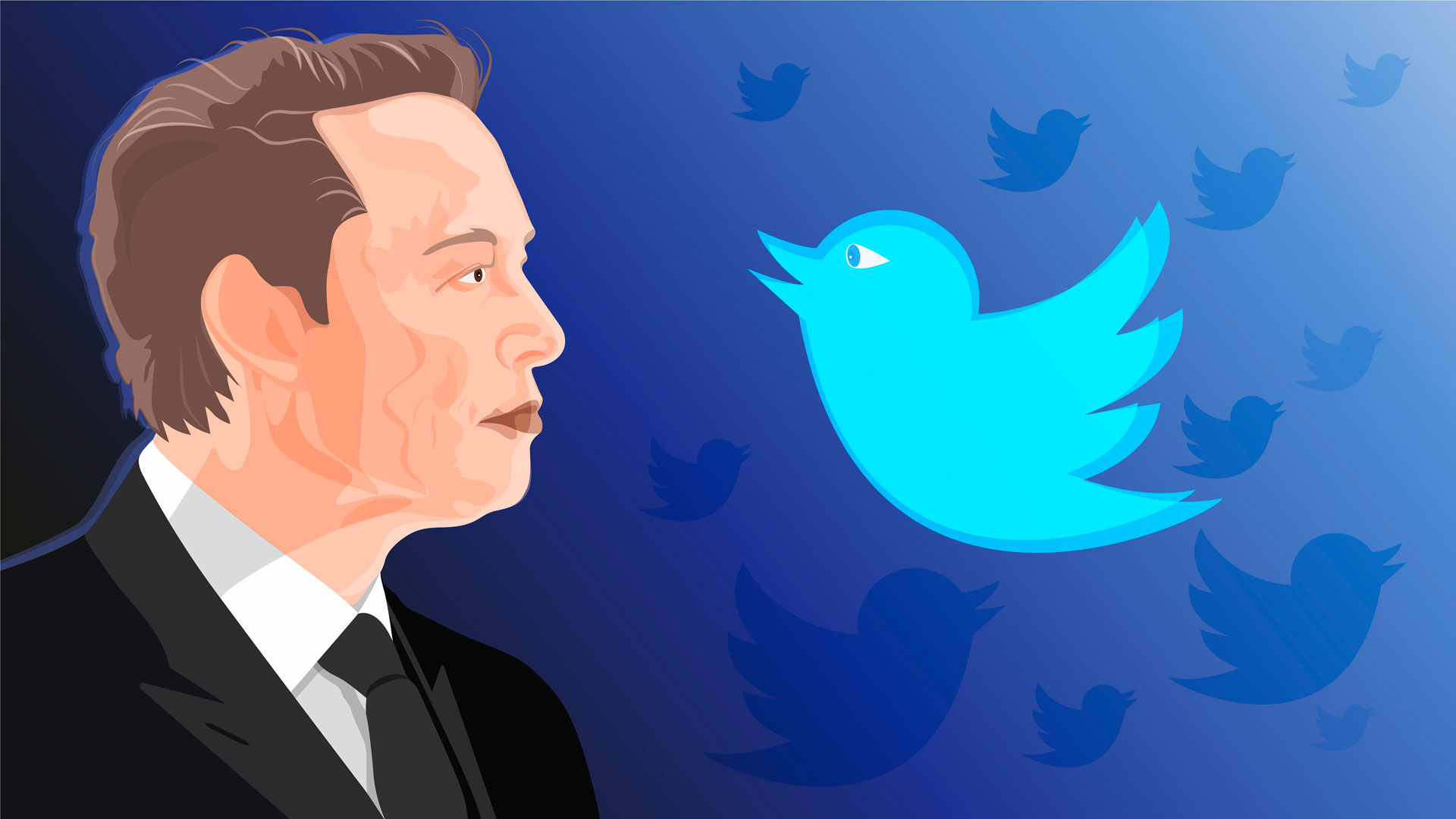Twitter 2.0 strategy is broken because Elon Musk still doesn't understand Twitter
Opinion: Do we need an Internet Town Square?

Twitter started as "A global community of friends and strangers answering one simple question: What are you doing?"
That was the mission: Millions of people hopping onto the micro-blogging service to share mundane and momentous thoughts and activities. The 140-character limit - a product of its SMS roots - fit perfectly with this original intention. You didn't need more space to share that you were "Eating a bagel," "Watching Lost," or even witnessing a plane floating in the Hudson river.
Naturally, Twitter changed as it grew and people started sharing not just what they were doing, but what they were thinking and feeling. Once you start sharing that stuff, well, inevitably others share, and not always in harmony. That's human nature for you.
I agree, this changed Twitter in ways that I and, I'm certain, its founders never anticipated. Twitter probably became too much of a lightning rod, maybe too powerful for shaping opinion. It accidentally became a public square, but one without the benefit of in-person humanity.
Two things are true: Twitter can't go back to what it was and you can't change human nature.
Can't change human nature
People are people, and, without the benefit of having to face people, you subtract humanity, leaving you with unfiltered emotion. It's gotten Twitter and those on it in a lot of trouble, including its new owner Elon Musk.
Perhaps that's why Musk struggles so much to fix what's broken. He's not just close to the problem, he's inside it. Still, he's promised "Twitter 2.0" and now we have the clearest outline of what that vision entails. It's not encouraging.
Sign up for breaking news, reviews, opinion, top tech deals, and more.
Twitter 2.0, which was outlined in a blog post on Wednesday, insists that it's the "Same mission." And the only real differences are "Faster innovation," and "More transparency."
This sounds good, great even, but it's not quite true is it?
The problem is that, even with Musk at the helm, no one has answered the central question of "What is Twitter's purpose?"
Being the Town Hall for the Internet is incredibly broad and discounts other platforms like Reddit, Discord, and even Facebook. Can someone explain what sets Twitter apart so much that it deserves that role and, more importantly, who asked it to be this?
Twitter's purpose
Twitter's role was never supposed to be the standard-bearer for free speech. As a social media platform built and hosted in the US, that was already the assumption. And don't let anyone fool you, people already say whatever the hell they want on Twitter.
Obviously, there are limits to free speech (there are limits everywhere). And companies - private and public - can have their own limits, which are either designed to satisfy shareholders, the rules of good common sense and safety, or all of the above. When you broke those rules on Twitter, your posts, and maybe even you got the boot. It wasn't a perfect system, but it more or less got the job done.
Twitter's new 2.0 mission statement seeks to give everyone the power to share ideas and information. There is the unspoken assumption that people were not doing that already.
But in this statement, which is a promise to make "human safety a top priority," Twitter contradicts itself with the desire to let people share "instantly without barriers." If further adds that while the content policies haven't changed, it'll be using "de-amplification" for content that violates these policies.
Put another way, you can say terrible things but Twitter will shadow-ban them. They'll still be on Twitter and, probably searchable. In fact, there is a further promise of "freedom of reach."
This is a new-ish phrase that Musk favors. It means, I think, you can still share your awful thoughts, fake news, junk science, etc. with your audience. Twitter, if I'm reading this right, won't stop you.
How this works in practice is not clear. Twitter does have rules that forbid:
- Violence
- Terrorism and violent extremism
- Child exploitation
- Abuse and harassment
- Hateful conduct
- Perpetrators of violent attacks
- Suicide or self-harm
- Sensitive media including live adult content
- Illegal goods and services
Will those things be removed immediately or simply "deamplified"? What gets to stay and be sort of hidden and what goes over the line is not entirely clear.
Interestingly, what's missing from the Twitter 2.0 manifesto is any mention of that Content Moderation Council Musk promised, ostensibly the people who could decide such things. I'm still not clear if Musk convened this group of smart and impartial people. Without them, how can this plan work?
It's good that Musk had Twitter put out this Twitter 2.0 policy statement. Maybe advertisers like Apple will find some...oh, wait, never mind. More likely though, Apple and all other Twitter partners still have questions.
Twitter can't get to 2.0 until it really understands what Twitter 1.0 was all about.
I'm still not sure Elon Musk gets it.

A 38-year industry veteran and award-winning journalist, Lance has covered technology since PCs were the size of suitcases and “on line” meant “waiting.” He’s a former Lifewire Editor-in-Chief, Mashable Editor-in-Chief, and, before that, Editor in Chief of PCMag.com and Senior Vice President of Content for Ziff Davis, Inc. He also wrote a popular, weekly tech column for Medium called The Upgrade.
Lance Ulanoff makes frequent appearances on national, international, and local news programs including Live with Kelly and Mark, the Today Show, Good Morning America, CNBC, CNN, and the BBC.